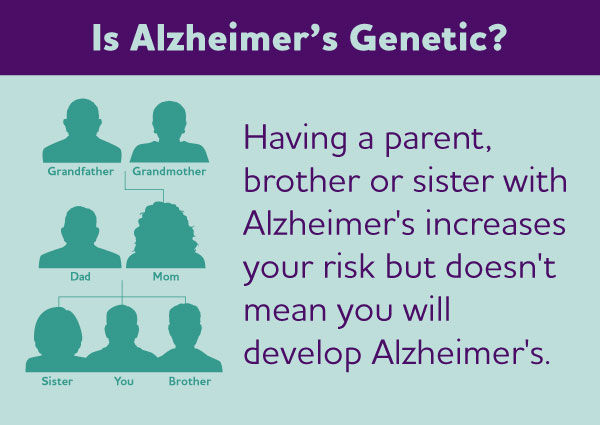A word that frightens everyone: Alzheimer’s
- hughconrad52
- Nov 4, 2025
- 3 min read

When a person has family members who are diagnosed with Alzheimer’s, they naturally become fearful of what can happen to them or to others in the family. Since my family does have a history of this dreadful disease, it is always in the back of my mind.
Even at the age of 78, I have been fortunate. I am working with high school and college students every day, teaching them the rudiments of the English language. My communication skills are still strong, and my memory and ability to analyze the fine points in this area have not left me.
However, I know that this can end. Therefore, when I see a headline like this, “Is Alzheimer’s Genetic?” I will read the literature.
I have attached the link to the Alzheimer’s Association article below, and some of it is very technical, but here are some areas that were vital for me.
Family history
If a person has family members who have contracted the disease, this does not mean that anyone will do so. The science is not definitive, but the research has given some ideas of the tendencies,
Family history is not necessary for an individual to develop Alzheimer's. However, research shows that those who have a parent or sibling living with Alzheimer's are more likely to develop the disease than those who do not have a first-degree relative with Alzheimer's.
Those who have more than one first-degree relative with Alzheimer's are at an even higher risk. When diseases like Alzheimer's and other dementias tend to run in families, either genetics (inherited factors) or modifiable factors such as sleep, smoking habits, hypertension or diabetes can further increase risk.
Alzheimer’s Association
Neither of the two members of my immediate family who were diagnosed with the disease actually died from it. Both succumbed to cancer. However, the doctor who treated one of them said that both in the family had the disease, so I am still concerned.
In addition, I have two first cousins who were also diagnosed with it. Despite that, I know that I could end my life without being diagnosed with it. However, the one reality is that scientists believe that there are strong ties between genetics and Alzheimer’s.
Here is the link to the article and to the association’s website. For those who are interested, it is worth some time to peruse.
Should families be tested for the genetics?
This is a difficult question to answer, but it is something worth considering. Here is the the association says about genetic testing,
Genetic testing
With the growth in public awareness of Alzheimer's and all other dementia, many people have questions about the genetics that drive disease and the value of genetic testing for Alzheimer's or other dementia risk.
Two international networks have been developed to gain further insight into Alzheimer's disease by identifying individuals with deterministic Alzheimer's genes who are willing to participate in research. The Dominantly Inherited Alzheimer Network (DIAN), funded by the Alzheimer's Association, the National Institute on Aging (NIA) and others, includes nearly 40 research institutes in North America, Australia, Europe and South America.
The Alzheimer's Prevention Initiative (API) focuses on an extended family in Antioquia, Colombia in South America. At 5,000 members, this is the world's largest family in which a gene that causes Alzheimer's has been identified. API collaborators include DIAN.
Alzheimer’s Association
In addition, the story does have information about at home genetic tests.
In any event, reading about the disease can help people understand the potential evidence that people may exhibit that could be of concern. For my father, who had it for at least 12 years, it started with simply forgetting little things in life.
However, it progressed to not being able to remember what day of the week it was. I worked with him to circle a calendar, and that worked for a while. Then, that became too much of a challenge. Then there were the times when he did not recognize people in his family. That can be heartbreaking.
In any event, I thought that this information may help people who have loved ones exhibiting dementia.



Comments